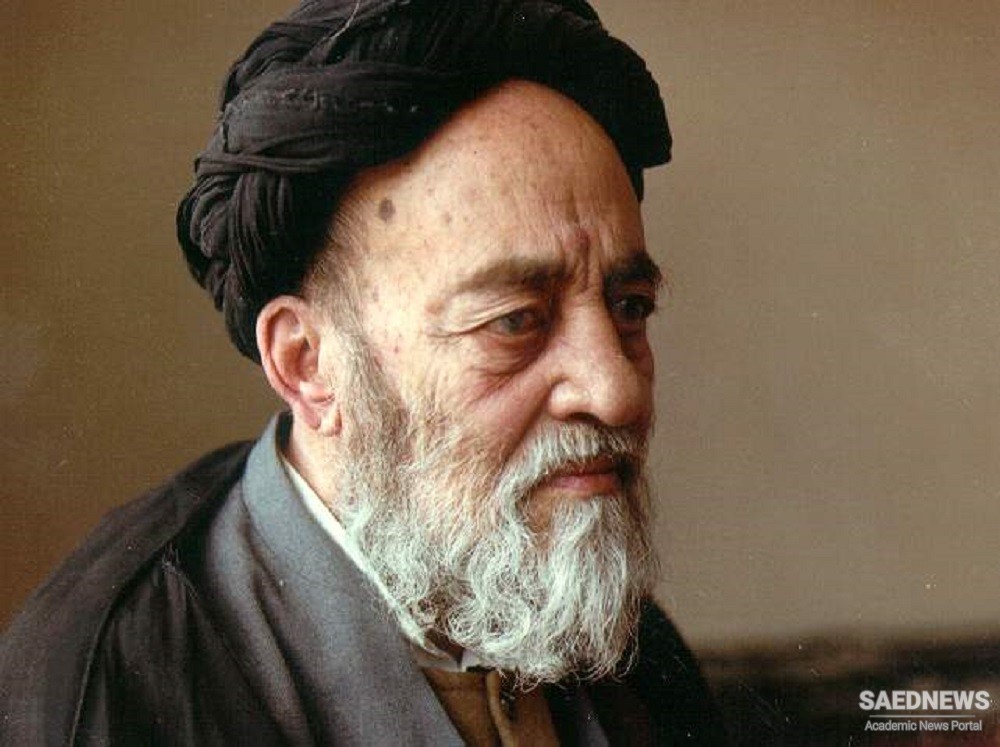And since man in a part of the world of creation and has an ontological relation with other parts of the cosmos, we cannot accept the premise that other parts should not have an effect upon his actions. For example, when a man takes a bite of bread he needs not only the instruments of his hands, feet, mouth as well as knowledge, power and will, but also the existence of the bread in the external world, its availability, the lack of obstacles and other temporal and spatial conditions. If any of these causes were not actualized, the action would not be possible. Conversely, with the actualization of all of them (the complete cause) the occurrence of the action becomes completely necessary. The necessity of the action in relation to all of the parts of the complete cause is not contradictory to the possibility of the relation of the action with respect to man, who is one of the parts of the complete cause. Man has the possibility or free will (ikhtiyar) to perform the act. The necessity existing in the relation between the action and all of the parts of the cause does not mean that the relation of the action to some of the parts of the cause, of which man is one, should also be that of necessity and determination.
Man’s simple and untainted comprehension also confirms this point of view, for we see that people through their God-given nature and intelligence distinguish between such things as eating, drinking, coming and going on the one hand, and on the other, such things as health and illness, age and youth or the height of the body. The first group, which is directly related to man’s will, is considered to be performed according to the free choice of the individual so that people command and prohibit them and blame or condemn them. But concerning the second group man has no duty and is not under any Divine command because he cannot exercise a free choice over them.
At the beginning of Islam among the Sunnis there were two schools that were concerned with the theological aspects of human action. One group, holding the view that human action is the result of the unbreakable will of God, considered man to be determined in his actions and held human free will to be devoid of any value and sense. The other group believed man to be independent in his actions, which did not depend upon the Divine will and were outside of the command of Providence (qadar).
But according to the instruction of the Household of the Prophet, which is also in conformity with the literal instructions of the Quran, man is free (mukhtar) in his actions but not independent (mustaqill). Rather, God the Almighty through free will has willed the act. According to our previous analysis, God the Exalted has willed and made necessary the act through all of the parts of the complete cause, of which one is the will and free choice of man. As a result of this kind of Divine will, the action is necessary but in it man has also free will, that is, the action is necessary with respect to all the parts of its cause, and possible and free in choice with respect to one of those parts which is man.9 The sixth Imam - upon whom be peace - has said, "It is neither determination nor free will but something between the two."
The fifth and sixth Imams said that "God loves His creation so much that He will not force it to commit sin and then punish it. And God is so powerful that whatever He commands comes to be." Also the sixth Imam has said, "God is so generous that He does not make it a duty for men to do what is not in their power. He is so powerful that nothing comes into being in His kingdom which He does not will." (This is an allusion to the two schools of predestination and free will.)


 Nasir Al-Mulk the Rainbow Mosque
Nasir Al-Mulk the Rainbow Mosque














































